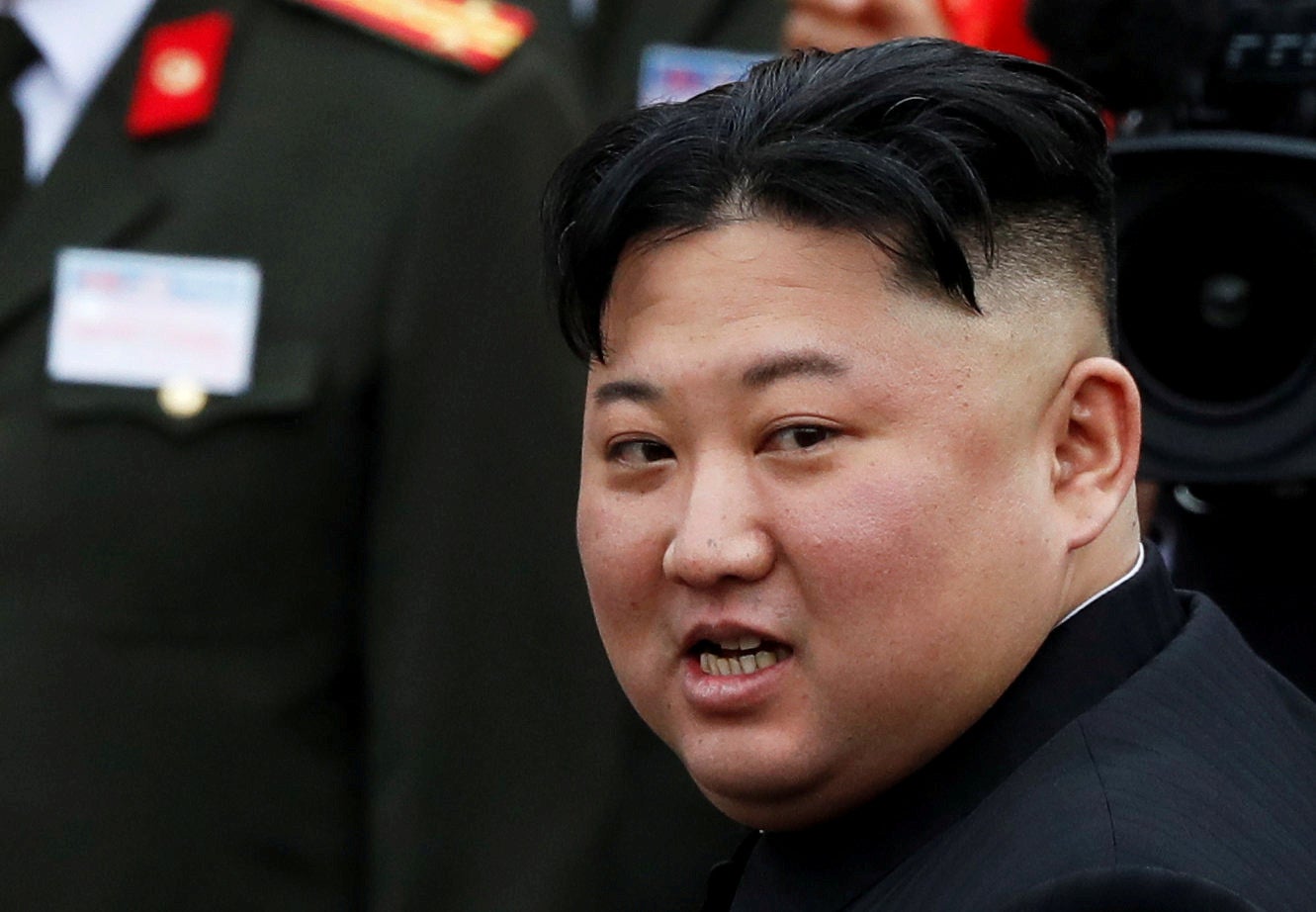Friend or foe: Kim Jong-un signals that North Korea may enter a new era of foreign relations
His call for ‘changed times’ might have something to do with a need for international help, reports Donald Kirk

North Korea’s Kim Jong-un appears to be reversing his hardline policy for now and holding out a tentative hand to his neighbour to the south – and maybe his arch-enemy the US as well.
In what appears like a carefully contrived move to bury the hatchet, meaning his nukes and missiles, Kim has just told a rare congress of the ruling Workers’ Party in Pyongyang that “the changed times” call for “comprehensively and expanding external relations".
That calculated verbiage highlighted a report covering “affairs with south [sic] Korea as required by the prevailing situation".
Kim read the report on Friday to more than 3,000 delegates at the congress, the first in nearly five years, a day after venerating the armed forces without mentioning his nuclear programme.
Kim issued the report on what is widely assumed to have been his birthday – his 37th, by most accounts. The North’s state media has never mentioned Kim’s age, much less when he was born, presumably because he was so young when he took over from his father, Kim Jong-il, who died in December 2011. Kim since then has demonstrated his toughness by killing off potential rivals, including his older half-brother and his uncle by marriage to his father’s sister, but now evidently feels a compulsion to show a kinder face.
Signs of a gentler policy toward South Korea was great news for Seoul, whose unification minister, Lee In-young, said before the congress that he hoped it would bring about renewed north-south dialogue. Kim met South Korea’s president Moon Jae-in four times after north-south relations thawed during the 2018 Winter Olympics in South Korea but has ignored Moon’s entreaties for more dialogue since the failure of his second summit with US president Donald Trump in Hanoi in February 2019.
Kim’s call for expanding relations with foreign countries would have to include the United States though he has yet to follow the lead of President Xi Jinping of China, the North’s only ally and source of desperately needed economic support, and congratulate president-elect Joseph Biden on his victory over Trump. In fact, with just 12 days to go before Biden’s inauguration, the North Korean state media has had nothing to say about Biden, who famously called Kim a “thug” during his great TV debate with Trump at the height of the presidential campaign.
Whether Kim wants to see where Biden is going on North Korea policy or remains loyal to Trump, who said that he and Kim “fell in love” at their first summit in Singapore, is not clear. Kim, though, had the US very much in mind when talking about “changing times".
“Kim is hoping that Biden will make the first move on negotiations and offer some major concession, some sanctions relief, to restart talks,” said Bruce Bennett, Korea expert at the Rand Corporation. “Kim is almost certainly going to want Covid treatments and vaccines from the US."
Indeed, said Bennett, while courting the US in coming months, Kim would have to reject offers of medical aid, including vaccines, from South Korea. “If the south has them and gives them to the north, that would make the south appear superior to the north,” Bennett said. “Kim cannot let his people see that.”
In fact, however, by paying at least rhetorical attention to improving relations with his foes, Kim may well be talking from a position of weakness while the country remains mired in poverty, hunger and disease exacerbated by Covid-19 on top of US and UN sanctions.
“Kim once promised the people they would never have to tighten their belts again,” said Evans Revere, a former senior US diplomat in Seoul. “He was wrong. Now he has to show the people a way out of the difficulties they are in.”
But how can Kim “do all this without easing the pressure of international sanctions and isolation”, asked Revere. “He must find a way to re-engage with the United States and the international community or further increase his dependence on China. No amount of ‘self-reliance’ will get him out of the hole he is in."
The critical question, said Revere, was whether Kim would “seek to compel the international community's attention by offering to negotiate or by engaging in threats and provocations and thereby engaging in diplomacy-by-extortion? Over the years, Pyongyang has tried both approaches".
Kim opened the whole congress by acknowledging “mistakes” to fulfil the five-year plan emanating from the last such confab in 2016. Far from engaging in a “mea culpa” of his own inadequacy, he blamed all those around him for the failure, replacing 29 of the 39 members of the presidium. Among the new faces at the pinnacle of the party is his younger sister, Kim Yo-jong, who already runs the omnipotent Organisation and Guidance Department.
In a flourish of traditional power, however, Kim is reportedly planning to wind-up the congress with a huge military parade. The parade may “signal to Washington that Pyongyang will continue developing its nuclear capabilities”, said a commentary by David Maxwell, a retired US army special forces colonel, and Matthew Ha, both with the Foundation for Defence of Democracies. “It is also possible that North Korea will conduct a missile or weapons test in order to challenge the new Biden administration."



Join our commenting forum
Join thought-provoking conversations, follow other Independent readers and see their replies
Comments